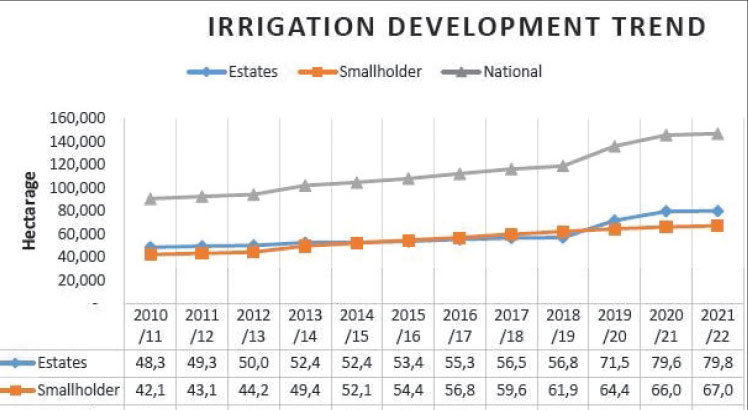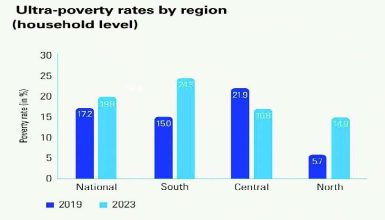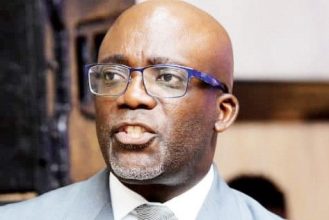Authority justifies irrigation billing
National Water Resources Authority has justified its move to enforce billing irrigation farmers as stipulated in the 1969 Water Resources Act, a development agriculture stakeholders say needs exemptions for new ventures.
In a written response, the authority’s public relations officer Masozi Kasambara said to bill a client, they look at volume of water used, with the minimum amount being K10 000.
He said: “We have a formula for billing irrigation farmers. The factors we use include the volume of water that an individual or entity uses, season, type of irrigation and a body where they are sourcing the water.
“The billing system has not started today. It started in 1969 when the Water Resources Act was first enacted. Over the period, enforcement of the Act and regulations left a lot to be desired.”

Kasambala said the authority is putting things in order in line with the existing laws and regulations.
While data from the authority shows that about 3 000 irrigation farmers are currently being billed under the system, some are worried that enforcement of the Act may jeopardise efforts towards agricultural commercialisation.
“We have so many costs that we have to incur in irrigation farming, and this maybe just another additional costs,” said a farmer.
However, agriculture policy commentator Tamani Nkhono-Mvula observed in an interview on Monday that while billing irrigation farmers will ensure proper management of water resources in the country, giving tax holiday for new entrants could help to ease the costs burden.
“What needs to happen is that those that want to go into commercial agriculture should be given tax holiday to reduce investments costs and maybe start billing them after they have started making profits,” he said.
Treasury data shows that in the 2021/22 financial year, out of 146 966.42 hectares developed land for irrigation, about 79 percent was utilised compared to 80 percent utilisation in the previous financial year.
According to Treasury, smallholder irrigation has over the years increased significantly while private estate irrigation has remained virtually static between 2013/14 and 2015/16, largely due to difficulties in identifying new pieces of land for new irrigation development and lack of access to capital.
Civil Society Agriculture Network board chairperson Herbert Chagona said on Tuesday that while it is important for the authority to regulate and ensure fair usage of water resources, billing irrigation farmers could have negative consequences for the agriculture sector, including financial burden, inequality in access to water resources and discourage investment.





